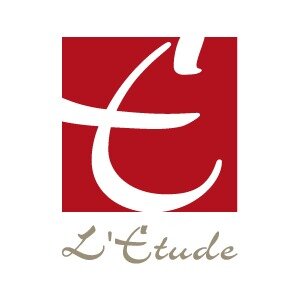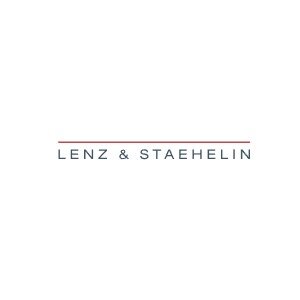Best Energy Regulatory Law Lawyers in Lausanne
Share your needs with us, get contacted by law firms.
Free. Takes 2 min.
List of the best lawyers in Lausanne, Switzerland
About Energy Regulatory Law in Lausanne, Switzerland
Energy Regulatory Law in Lausanne, Switzerland, governs the production, distribution, and consumption of energy, including electricity, natural gas, and renewable sources. This legal area ensures that energy markets operate smoothly, that regulations for safety and sustainability are met, and that consumer rights are protected. Lausanne, situated in the Canton of Vaud, follows both federal Swiss laws and local cantonal regulations. The legal framework balances state oversight with market liberalization, promoting efficient energy use, environmental protection, and fair competition among energy providers.
Why You May Need a Lawyer
There are several situations where you may require legal guidance in the field of Energy Regulatory Law in Lausanne:
- Starting an energy company, whether for electricity, gas, or renewables
- Negotiating or drafting contracts related to energy supply, distribution, or grid access
- Complying with federal or cantonal energy regulations and obtaining the necessary permits
- Resolving disputes between consumers and energy providers or between companies
- Understanding or challenging decisions by energy regulatory agencies
- Addressing issues of energy tariffs, pricing, or unfair competition
- Responding to allegations of regulatory or environmental non-compliance
Energy Regulatory Law is complex, and a qualified lawyer can help you navigate the rules, ensure compliance, protect your rights, and minimize legal risks.
Local Laws Overview
Energy law in Lausanne is governed by a combination of Swiss federal legislation and specific cantonal rules. The key federal law is the Energy Act (Loi sur l'énergie), which aims at efficient energy use, expanded renewable sources, and sustainable infrastructure. The Swiss Federal Electricity Supply Act and the Federal Act on Pipelines also provide frameworks for supply, market access, and safety.
Cantonal regulations in Vaud address local grid management, building requirements for energy efficiency, and subsidies for renewable energy installations. Energy tariffs are overseen by the Swiss Federal Electricity Commission (ElCom) but local authorities play a role in approvals and enforcement. Municipalities, including Lausanne, may also adopt local energy strategies or climate action plans, impacting requirements for property owners and developers.
Understanding how these different legal layers interact is essential for anyone involved in energy production, distribution, or consumption in Lausanne. Failure to comply can result in penalties, delays, or legal disputes.
Frequently Asked Questions
What types of energy sources are regulated in Lausanne?
All main energy sources are regulated, including electricity, natural gas, heating oil, and renewables like solar and wind. Specific requirements and permits can vary depending on the source.
Can I produce my own renewable energy at home?
Yes, self-production of renewable energy, such as installing solar panels on your property, is allowed. However, you must comply with local building codes and may need permits from municipal authorities.
How are electricity prices determined?
Electricity prices in Lausanne are regulated by the Swiss Federal Electricity Commission (ElCom). Prices depend on supply costs, network fees, and local taxes. Consumers can often compare offers from different suppliers if eligible by market rules.
What should I do if I have a dispute with my energy provider?
First, try to resolve the matter directly with your provider. If unsuccessful, you can contact the Ombudsman for energy or a lawyer specializing in Energy Regulatory Law, particularly if the dispute involves billing, supply interruptions, or contract terms.
Am I allowed to choose my energy supplier?
Choice depends on whether you are a large commercial consumer or a household customer. Full market liberalization is not yet enacted for all residential customers in Switzerland, so your options may be limited.
Are there requirements for energy efficiency in buildings?
Yes, both federal and cantonal laws set energy efficiency requirements for new construction and renovations. These may cover insulation, heating systems, and the use of renewable energy sources.
Who enforces energy regulations in Lausanne?
Enforcement is shared between federal agencies, such as ElCom and the Federal Office of Energy, and cantonal bodies like the Service de l'énergie du Canton de Vaud, as well as municipal authorities in Lausanne.
What permits are needed to operate an energy business?
You will need specific permits for generation, distribution, or sale of energy. These may include environmental approvals, grid access agreements, and business licenses, often granted by both cantonal and federal authorities.
How can I participate in local energy or climate initiatives?
The City of Lausanne and the Canton of Vaud regularly launch programs to promote renewable energy and energy efficiency. You can participate as an individual or company by applying for grants or joining public-private partnerships.
What are the penalties for non-compliance with energy laws?
Penalties range from administrative fines to court orders halting a business activity. Non-compliance with building efficiency standards or environmental requirements may also lead to enforcement actions.
Additional Resources
To find more information or assistance regarding Energy Regulatory Law in Lausanne, consider these resources:
- Swiss Federal Electricity Commission (ElCom): The national energy regulator overseeing tariffs and market rules.
- Federal Office of Energy (Office fédéral de l'énergie - OFEN): Publishes guidelines, reports, and policies on national energy strategy.
- Service de l'énergie du Canton de Vaud (SEVEN): The cantonal body handling local regulatory matters and permits.
- City of Lausanne Energy and Climate Department: Offers programs and information on sustainability and local energy initiatives.
- Swiss Association for Energy Law: A professional organization with resources and referrals to legal experts in the field.
- Ombudsman for Energy Switzerland: Mediates disputes between consumers and energy providers.
Next Steps
If you need assistance with Energy Regulatory Law in Lausanne, consider these steps:
- Gather all relevant documents, such as contracts, permits, or correspondence with authorities or energy providers.
- Define your legal issue clearly, whether it involves compliance, permits, contracts, or disputes.
- Seek a qualified lawyer with experience in Swiss and cantonal energy law. Look for professionals registered in the Canton of Vaud or members of the Swiss Association for Energy Law.
- Contact the appropriate regulatory or support body, such as ElCom, SEVEN, or the Ombudsman, especially for consumer-related concerns.
- Ask your lawyer about possible mediation or alternative dispute resolution methods, which may save time and costs.
- Stay informed about legal changes, as Swiss energy law is evolving with the transition to more sustainable sources and technologies.
Taking early action and seeking expert advice will help you protect your interests and ensure full compliance with Energy Regulatory Law in Lausanne, Switzerland.
Lawzana helps you find the best lawyers and law firms in Lausanne through a curated and pre-screened list of qualified legal professionals. Our platform offers rankings and detailed profiles of attorneys and law firms, allowing you to compare based on practice areas, including Energy Regulatory Law, experience, and client feedback.
Each profile includes a description of the firm's areas of practice, client reviews, team members and partners, year of establishment, spoken languages, office locations, contact information, social media presence, and any published articles or resources. Most firms on our platform speak English and are experienced in both local and international legal matters.
Get a quote from top-rated law firms in Lausanne, Switzerland — quickly, securely, and without unnecessary hassle.
Disclaimer:
The information provided on this page is for general informational purposes only and does not constitute legal advice. While we strive to ensure the accuracy and relevance of the content, legal information may change over time, and interpretations of the law can vary. You should always consult with a qualified legal professional for advice specific to your situation.
We disclaim all liability for actions taken or not taken based on the content of this page. If you believe any information is incorrect or outdated, please contact us, and we will review and update it where appropriate.











